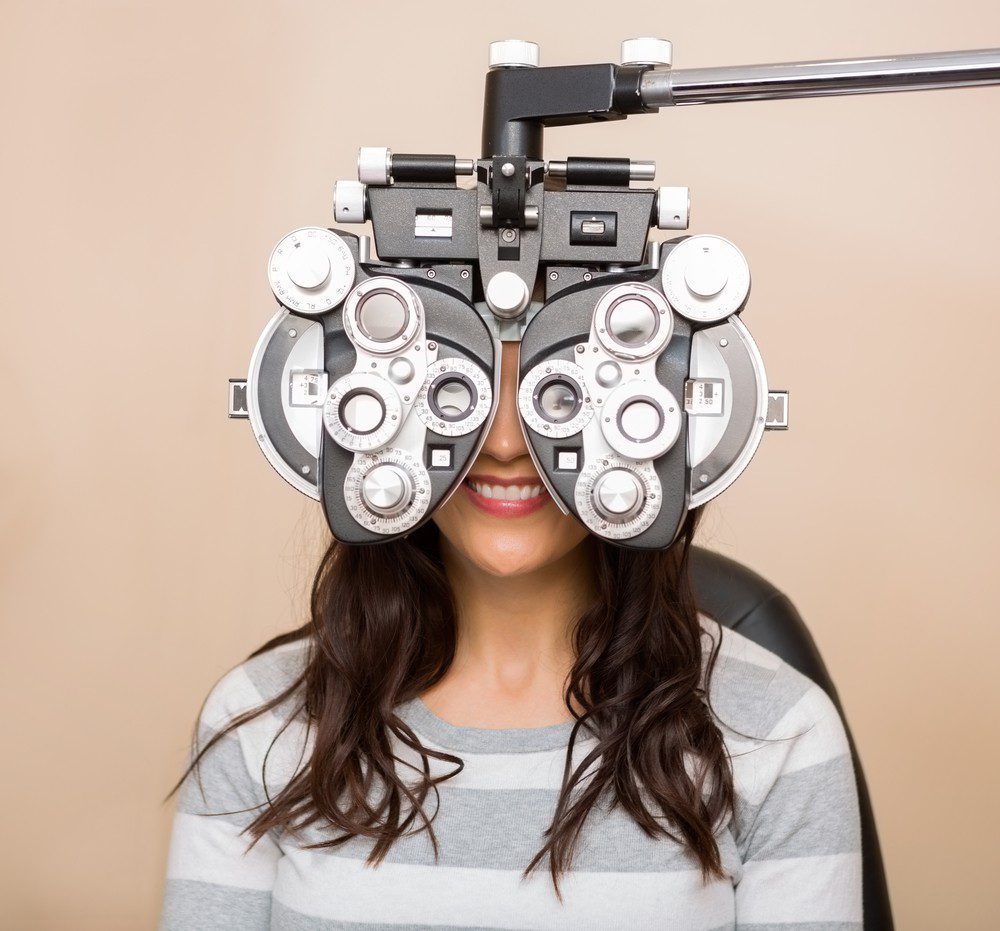
FAQ
What are polarized sunglasses and what are they used for?
Fishermen around the world have known about the benefits of using polarized sunglasses for years, and it’s use has slowly been adopted by...
Eye health

Blue light, a danger to your children’s eyes
Eye health
The blue light emitted by these screens is very harmful to children’s eyes, which are still vulnerable. It has a direct impact on their health and causes multiple disorders including headaches. Blue light is also responsible for visual fatigue and sleep disorders. It increases the chances that a child will become astigmatic, myopic or hyperopic in adulthood. Children do not always wear eyeglasses, sunglasses or contact lenses. According to the Ordre des Optométristes du Québec, “only one third of children are examined by an optometrist before entering school” and “61% of Canadian parents mistakenly think they can detect their child’s eye problems.” A child’s crystalline lens hardly filters UV and does not filter the blue part of the light spectrum. Therefore, it is important to have an optometrist perform an eye exam so that a child can be fitted for a pair of glasses specifically designed to block the harmful effects of blue light.
Glasses that guard against blue light are available for children. You can buy your child protective ophthalmic lenses that are made with a special coating created to reflect and block the penetration of blue light. With this coating, the harmful part of the blue light does not reach your child’s eyes—by preventing its entry, contrasts are improved and flicker and visual fatigue are diminished. For outdoor daylight, there are tinted or polarized sunglasses that are specially designed to absorb blue light. In addition, transition lenses provide excellent protection against blue light. Ask your optometrist about the types of glasses that will best protect your child’s eyes against light from screens.
According to some studies, before the age of 2, non-interactive screens such as those used for television and DVDs have only negative effects. They can cause visual disturbances, weight gain, delayed language, a lack of concentration and attention, and should therefore be avoided for infants.
Between 2 and 3 years of age, exposing children to television in a passive and prolonged way and without an interactive, educational human presence is strongly discouraged. Of course, the ideal would be not to expose them at all to these screens because, at this age, children need to build their temporal and spatial guidelines. For that reason, good vision is extremely necessary.
From the age of 3, screens help children to distinguish between the real and the virtual. They will be able to copy and imitate what they see. However, they should not spend more than 1 hour per day in front of a screen (all devices combined). Screens are good, but in small doses.
At about 4 years of age, computers, game consoles and especially (parents’) cellular phones can become an occasional casual gaming for the child. However, it is important to pay attention to a child’s hours of use and to avoid allowing a child to play alone because at this age, and up to 6 years old, addiction can appear. It is therefore necessary to avoid allowing a child to have a personal device before this age.
Moreover, it is between the ages of 3 and 6 that a child needs to develop all of his manual and sensory possibilities. Optometrists recommend that children not exceed 1 hour of screen use per day. In addition, health and childhood professionals suggest that the programs and applications chosen must be of high quality. In addition, they recommend that parents are present in order to explain what their child is seeing and how it applies to the world around them.
It is important for the social development of the child to be established when the child is between 6 and 10 years of age. That is to say, it is best to set a certain amount of screen time per day so that the child can discover social gaming and involve themselves with others.
From 9 to 12 years of age, children need to explore the world and its complexity. From the age of 12, parents must monitor possible nighttime screen use because it can be harmful. Good use of these screens allows an adolescent to improve control over emotions and thoughts, actions and decisions.
However, excessive use of screens and especially the Internet can lead to zapping thoughts that are too fast, superficial and fluid. This reduces memory as well as the ability to synthesize the personal and consciousness . It also causes drowsiness, difficult concentration and eye problems. Vision is essential to a child’s learning experience—this can be reflected in academic performance, when one observes a decline.
Faced with reliance on screens and a sedentary lifestyle, a child’s education must be modified so that they are able to adopt new behaviors and improve their own growth/development and their social setting.
In addition, there are some signs to consider if your child spends a lot of time in front of screens. For example, if they blink too often, this may be due to dryness that is often caused by screens. To protect eye health, an optometrist must be consulted at an eyewear shop for an eye exam and possibly glasses, sunglasses or contact lenses.
It is important to have a child screened very early for vision problems. Optometrists recommend getting an eye exam for children at the following times, even if there are no signs of an eye problem:

FAQ
Fishermen around the world have known about the benefits of using polarized sunglasses for years, and it’s use has slowly been adopted by...

Eyewear
Children just love playing outdoors under the sun and with good reason: it feels good and natural. They also get a good dose of Vitamin D and some fresh air to boot...

Eye health
The eyes are one of the most fragile organs of the human body. They are prone to problems when not properly cared for. Protected only by a thin layer of…